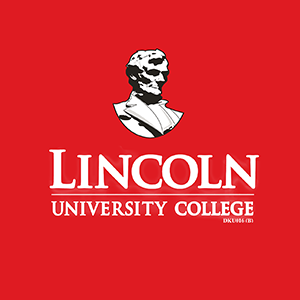Masters Degrees in Civil Engineering would produce highly competitive researchers and professionals in the fields of civil engineering capable to taking challenges involved in designing, implementing and maintaining vital infrastructure, from everyday tunnels, bridges and railways to flood barriers and earthquake protection systems. The students will be given a stimulating teaching environment which blends conventional lectures and tutorials with online materials. The curriculum would include supportive programs with industry and other academic institutions, including new developments, current implementation status and prospects of future expansion. The program would impart and enhance capability and capacity to develop a healthy body and mind to become a disciplined individual, disciplined manager, and disciplined leader.
For successful completion of Masters degree in LUC, each candidate should publish minimum of Two research articles in scopus indexed journals, with Lincoln affiliation.
The aim of this program is to produce graduates who are both skilled in structural engineering principles and have the ability to apply and solve complex open-ended engineering works and problems. The program of Master of Science in Civil Engineering will produce Civil Engineers who are:
- Knowledgeable to apply practical skills to face the challenges and opportunities of the rapidly evolving civil engineering field.
- Capable of demonstrating individual, professional and social responsibility through value and attitudes.
- Able to organize and relate ideas coherently in written, oral, and graphic form using standard conventions and tools and synthesize information, and draw reasoned inferences in the field of civil engineering.
- Proficient with information management skills to pursue advanced educational opportunities, along with the development of life-long learning skills for enquiry based learning.
Masters Degrees in Civil Engineering program is to encourage students to make unceasing and diligent efforts to pursue holistic self-development to cultivate self-discipline and integrity, to nurture creativity into broad-minded future leaders with a global outlook. Civil and structural engineers work in a range of sectors, particularly the construction sector, on buildings of all kinds of transport and communications infrastructure. Career prospects after a Masters in Civil Engineering include:
- Building control surveyor
- Consulting civil engineer
- Contracting civil engineer
- Nuclear engineer
- Site engineer
- Structural engineer
- Water engineer
- Building services engineer
- Engineering geologist
- Environmental consultant
- Patent attorney
- Quantity surveyor
- Sustainability consultant
| Sl.No. | MQA Subject Code | Subject Name | Credits |
|---|---|---|---|
| 1. | MCE 7113 | Construction Methods and Equipment’s | 3 |
| 2. | MCE 7123 | Structural Dynamics | 3 |
| 3. | MCE 7133 | Pre-stressed Concrete | 3 |
| 4. | MCE 7143 | Advanced Soil Mechanics* | 3 |
| 5. | BEL 5003 | Research Methodology | 3 |
| 6. | MCE 7213 | Design of Substructures | 3 |
| 7. | MCE 7223 | Structural Stability | 3 |
| 8. | MCE 7233 | Project Management | 3 |
| Student’s need to choose one specialised area (A or B or C or D or E) and select any three Elective courses from the same area of specialization. | |||
| A – Geo-Technical Engineering (MCEG) | |||
| 9. | MCEG 7213 | Soil Exploration | 3 |
| 10. | MCEG 7223 | Soil Structure Interaction* | 3 |
| 11. | MCEG 7233 | Environmental Geo-techniques* | 3 |
| 12. | MCEG 7243 | Earthquake Geo-technical Engineering* | 3 |
| B- Structural and Construction Engineering (MCEC) | |||
| 13. | MCEC 7213 | Energy Conservation Techniques in Building Construction* | 3 |
| 14. | MCEC 7223 | Advanced Theory of Concrete Structures* | 3 |
| 15. | MCEC 7233 | Advanced Construction Techniques* | 3 |
| 16. | MCEC 7243 | Advanced Steel Structures* | 3 |
| C – Water Resources Engineering (MCEW) | |||
| 17. | MCEW 7213 | Design of Hydraulic Systems* | 3 |
| 18. | MCEW 7223 | Advanced Fluid Mechanics* | 3 |
| 19. | MCEW 7233 | Hydro power Engineering* | 3 |
| 20. | MCEW 7243 | Water Quality Modelling* | 3 |
| D- Environmental Engineering (MCEE) | |||
| 21. | MCEE 7213 | Wastewater treatment* | 3 |
| 22. | MCEE 7223 | Water and Wastewater Engineering* | 3 |
| 23. | MCEE 7233 | Industrial Pollution Control and Prevention Technologies* | 3 |
| 24. | MCEE 7243 | Principles of Environmental Management* | 3 |
| E- Highway and Engineering (MCEH) | |||
| 25. | MCET 7213 | Railway Engineering* | 3 |
| 26. | MCET 7223 | Design of Pavements* | 3 |
| 27. | MCET 7233 | Geometric Design of highways* | 3 |
| 28 | MCET 7243 | Highway and Airport Pavement Materials* | 3 |
| 29. | MCE 73112 | Research Project | 12 |
- Bachelor’s Degree (Phase 6 MOH) in Engineering with a minimum CGPA of 2.50 or equivalent as received by the Lincoln University College; Or
- Bachelor’s degree (level 6 KKM) in Engineering or equivalent to it but not achieving CGPA 2.50, admitted being subject to a minimum of five (5) years working experience in relevant fields.
For candidates who hold a Bachelor’s Degree (Level 6 MOH) in Science or Technology (not Engineering), the pre-requisite module in Engineering must be offered to prepare them for further study.
For candidates who have a Bachelor’s Degree (Level 6 KKM) not in Mechanical Engineering need to take Machine Design course.
For international students
Test Score of English as a Foreign Language (TOEFL) 500 or an International English Language Testing System (IELTS) 5.0 score or equivalent. If students do not meet these criteria, Lincoln University College must offer English language proficiency courses to ensure that students’ proficiency is adequate to meet program requirements. This is usually done through the assessment process.
